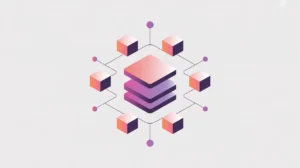Importance of MLOps
MLOps, or Machine Learning Operations, is the practice of managing the full lifecycle of machine learning models, from data preparation and training to deployment, monitoring, and maintenance. It adapts lessons from DevOps but addresses the unique challenges of AI systems, where models evolve as data changes. Its importance today lies in the need to move beyond experimental prototypes and deliver machine learning solutions that are reliable, scalable, and sustainable in production.
For social innovation and international development, MLOps matters because organizations often depend on AI in high-stakes, resource-constrained environments. Effective MLOps ensures that models stay accurate, fair, and accountable while minimizing the costs and risks of constant rework.
Definition and Key Features
MLOps combines elements of data engineering, model development, and IT operations into an integrated workflow. It includes dataset and model versioning, automated testing, deployment pipelines, continuous monitoring, and retraining strategies. These practices bridge the gap between data scientists, engineers, and operators, aligning their work toward consistent, repeatable outcomes.
MLOps is not the same as DevOps, which focuses on traditional software applications. Nor is it equivalent to research-focused data science, which may stop at training and evaluation. MLOps emphasizes the production environment, where models must perform reliably over time and adapt to shifting conditions.
How this Works in Practice
In practice, MLOps frameworks package models into reproducible environments, expose them through APIs or endpoints, and track performance in real-world settings. Drift detection alerts teams when predictions diverge from reality, prompting retraining or fine-tuning. Automation pipelines streamline these processes, ensuring updates are delivered quickly and consistently. Governance measures, such as data lineage tracking and explainability tools, add transparency and accountability.
Challenges include preventing biases from being amplified, managing costs of retraining, and building capacity for interdisciplinary collaboration. Popular tools supporting MLOps include MLflow, Kubeflow, and cloud-native services that integrate with broader DevOps platforms.
Implications for Social Innovators
MLOps has direct impact in mission-driven work. Health systems use it to update diagnostic models as new patient data becomes available. Education platforms apply it to manage adaptive learning tools that adjust to evolving student needs. Humanitarian organizations rely on MLOps to monitor predictive models in crisis settings, ensuring they remain accurate despite volatile conditions.
By instilling discipline and reliability in AI workflows, MLOps helps organizations sustain trust and maximize the long-term impact of their machine learning initiatives.







